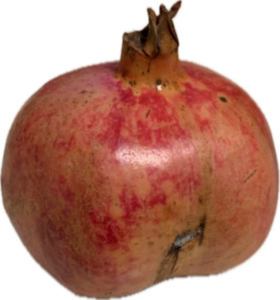Picture above created by ChatGPT Plus
Introduction by Prof., Dr. paed. Karine Oganisjana, Riga Technical University
Sometimes, the most unexpected encounters can change the way we see the world. Research is often thought of as a structured journey toward knowledge, but what if it also transforms the researcher?
Spending two years immersed in the Horizon Europe project AECED Transforming Education for Democracy through Aesthetic and Embodied Learning, Responsive Pedagogies, and Democracy-as-Becoming inevitably left its mark on me. This realisation crystallised on January 1, 2025, as I reflected on a seemingly trivial episode from just a few days prior.
This tale was born from an ordinary moment of ordering groceries online, but what unfolded was an exploration of judgment, acceptance, and the dignity of imperfection. Like learning, life often presents us with unexpected experiences, and how we engage with them shapes not only our understanding but also ourselves.
I cannot say that I passed through all ten phases of transformative learning formulated by Jack Mezirow – from experiencing a disorienting dilemma and moving through self-examination with feelings of guilt or shame to ultimately reintegrating a new perspective into my life (Mezirow, 1991). However, I did notice a shift within myself. My deep engagement in participatory action research conducted in three schools in Latvia heightened my sensitivity and openness to new possibilities (Woods et al., 2023), allowing me to see and listen to the other in a profoundly new way.
This story is an example of how, sometimes, the simplest experiences mirror deeper transformations. It invites us to reflect on how open we are to the unfamiliar, the imperfect, and the ‘other’—not just in fruits, but in people, experiences, and ideas.
Mezirow, J. (1991). Transformative Dimensions of Adult Learning. San Francisco: Jossey-Bass.
Woods, P. A., Culshaw, S., Smith, K., Jarvis, J., Payne, H. & Roberts, A. (2023). Nurturing Change: Processes and outcomes of workshops using collage and gesture to foster aesthetic qualities and capabilities for distributed leadership. Professional Development in Education, 49(4), 600-619
The Pomegranate Tale
By Prof., Dr. paed. Karine Oganisjana, Riga Technical University
1 January 2025
It was one of those Christmas days when the list of things to be done was longer than the time and energy I had to do them. So, I decided to order food online, convinced that delivery straight to my door would save me both time and energy.
Convenience versus connection
I have mixed feelings about this convenience. On the one hand, it is incredibly easy – just click on what you see in the photo, pay with your card, and voilà, it’s as if you have made a wish to a genie, and in return, hear, “Your wish is my command.”
On the other hand, to be completely honest, I sometimes feel a pang of regret for not being able to choose my own fruits and vegetables. For me, it is a sacred ritual – a moment of connecting with nature and my own desires in this digital age. When you pick up a fruit, admire its colour, feel its texture with your fingertips, close your eyes and inhale its fragrance, you are fully present. The weight of it in your hand, the anticipation of its taste and how its life-giving essence will become a part of you – it is an intimate, grounding experience.
Without that connection, I feel detached, reliant on someone else’s choice. It is as though I have lost a bit of myself in the transaction.
A transformation from disappointment to appreciation
When the delivery arrived, I opened one of the paper bags and found three pomegranates inside. I immediately felt a wave of disappointment. They were small, with skin the colour of a wilted rose – nothing like the vibrant red I expected. This, I knew, was a sign that they would be sour, lacking the rich sweet-and-sour flavour of the ripe fruit’s glossy ruby seeds. One of the pomegranates, even more strangely, had an irregular shape, marred by a dark mark that had created an obvious dent. It looked imperfect, deformed.

The pomegranate that transformed me
My first reaction was resentful: “I would never have chosen this pomegranate.”
But as time passed, my initial frustration gave way to curiosity. I washed that very pomegranate, carefully peeled back its skin, and collected the pink seeds in a bowl. To my surprise, when I tasted a couple of them, I liked the flavour. Yes, it was different from what I was used to – but beneath its imperfect exterior, it was still, in every way, a pomegranate.
That’s when I started thinking about its journey. This pomegranate came from a different place, perhaps with different conditions than the ones I’m accustomed to. But it too had received its share of warmth from the sun, its breath from the air, and its nourishment from the soil. Yes, its shape was unusual, but was that really so important? Who knows what challenges it faced, what trials it had to overcome before it found its way to my kitchen table, asking for acceptance and respect?
I smiled and felt a little ashamed of my initial judgment. By the evening, when the seeds were decorating my salad, they seemed to shine with an almost knowing smile. There was a quiet, mutual gratitude between us.
Realisation
What I learned that day is that I should not limit myself to choosing only the “perfect” fruits and vegetables. I should also intentionally embrace the imperfect ones – the ones that do not fit the mould. I should be more open to what lies beyond my own rigid definitions of perfection and value. After all, even the “imperfect” can have their own unique beauty and worth.
Indeed, variety is the spice of life.
For self-reflection. I wonder whether we are truly open to the “other” …
#democraticsensibility #AECEDProject #Education4Democracy

